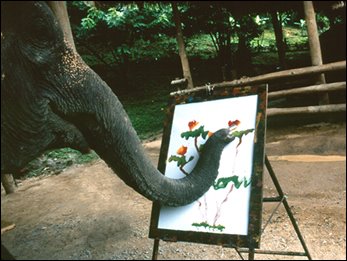
Thesis:
John James Ingalls' semi-famous eulogy quote combined with the historic snapshot of Iwo Jima bring into sharp relief the procedural irony of modern war, throws into question the reasoning behind hierarchal systems, and to a lesser extent provides a window into certain aspects of human nature.
Body Paragraphs:
The process of modern war is ironic because it essentially consists of two (or more) entities with opposing agendas struggling to outmaneuver the other and establish their agenda as the prominent one. These "entities" are structured in such a way as to maximize efficiency, much in the same way as a mechanic maintains a machine (this analogy brings into play several other interesting possible observations, but they must wait for a later paragraph). Of course, these structured entities are attempting to dominate by sending the most of the enemy's participants to the one place that (we think - or rather, John James Ingalls thought) rank and prerogative count for absolutely nothing. Maybe I just have a negative personality, but that strikes me as incredibly ironic.
In order to approach this next quandary, I must pose a question: are "humans" and "animals" not fundamentally the same type of organism (aside from debatable differences in cognitive ability)? Please take a moment or two to ponder the question. I believe the answer to this question to be a "yes" for 3 reasons: 1.) we function under the same basic requirements, such as food, water, and oxygen, 2.) our cellular structure is too similar to be coincidental, and 3.) if one was still not convinced, proof could be found by mashing up a human and a cow (making sure that the masses were relatively similar) and asking an impartial observer to identify the remains. Therefore, I reason that since humans and animals are indeed in similar biological classes, and since hierarchies are a human invention (the way humans consider them - animal hierarchies tend to be based on fitness), human hierarchies are pretty much meaningless, because (to the best of our "scientific" knowledge, which is admittedly non-existent) we all come from the same place, we all go back there, and we don't bring any of our political clout in either direction.
If we assume the two previous observations to be true (the ones about mechanics and animals), then we must ask ourselves why humans process information in such a radically different way than practically every other organism on this planet. Do sheep make cars? Do cats sketch out quantum mechanics? Strangely enough, a few slightly famous people have given this same question some serious thought (they are called philosophers), but have yet to produce a widely accepted theory. It seems to me that everything humans touch is somehow ____ (some might call it blessed, others infected) by our seemingly unique logical thought process. This is also true for the aforementioned modern war (and its inherent irony), but animal territorial rivalry does not strike me as especially ironic. This could be because animals generally fight for pragmatic reasons exempt of ulterior motives (again tying into the quote taken from the illustrious John James Ingalls).
A picture, they say, is worth a thousand words. I don't think I quite reached that total, but I could if I was willing to devote extra time to ferreting out increasingly obscure connections between the image, the quote, and the "real" world, and so could you. I am sure that the individuals raising this flag would have had some thoughts on this quote if they had heard it, especially considering that three of the men were killed in action (Franklin Sousley, Harlon Block, and Michael Strank) shortly after this photo was taken.


